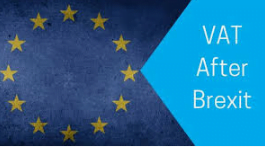
Do you trade with customers and suppliers in other members of the EU? Then you might want to read on…
*all is subject to changes as and when a deal is negotiated
Following on from the news today that a Brexit deal has been struck – here is some initial guidance (subject to change) from HMRC
If you import and export GOODS to and from the UK/ EU then after 31st October you will need to consider the following:
Exports
- You will need to apply for an EORI number in order to export your goods
- Your customer/ importer will ALSO need an EU EORI number
- You will need to make export declarations – most people use the likes of DHL and Fedex to make the declarations which is what LeeP Accountants recommend
- VAT registered businesses will Zero-Rate sales of goods to EU businesses meaning no VAT is charged on these goods (as opposed to Reverse charge the VAT)
- Your recipient EU customer will have to pay import VAT and customs duties upon receipt of the goods into their country border
- Some businesses may be able to use the Common Transit Convention (CTC) if your goods go THROUGH the EU en route to a final destination meaning import VAT and customs is only paid once the goods reach their FINAL destination – DHL/ Fedex can help with this
Imports
- If you are not VAT registered you will now have to start paying import VAT and customs on all goods imported from the EU
- If you ARE VAT registered, subject to any deal changes, you can (probably) account for the VAT on your VAT return but you will still have to pay customs
Services
- The VAT treatment on the supply of services to customers in the EU will depend on whether the EU customer is BUSINESS customer – if so, then you do NOT charge VAT
- If your customer is a NON-BUSINESS customer, then you charge them UK VAT at 20%
You can evidence if they are a business vs non-business customer by their provision of an EU VAT number
If you are unsure how Brexit impact your business finances, get in touch with LeeP Accountants for a conversation about how to become our client.
01733 699033


